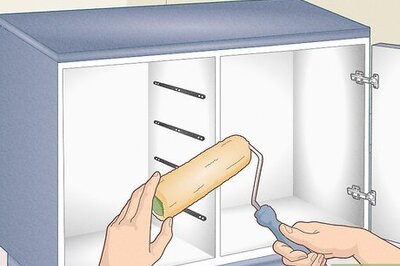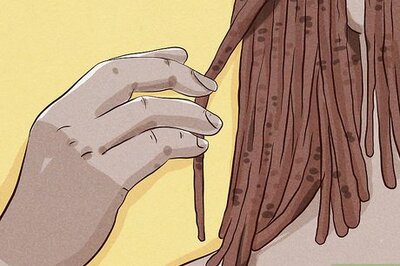
views
New York: If some children seem like they were born to be bad, new research suggests it may be true.
In a study of adult twins and their children, researchers found that genes, rather than parents' own argumentative behaviour, seemed key in the children's odds of serious conduct problems including bullying, skipping school and shoplifting.
The findings, published in the journal Child Development, touch on the classic nature-versus-nurture question.
In the case of child behaviour, research has linked parents' marital conflicts to long-term, serious conduct problems in their children.
However, it has been unclear whether that means that marital woes themselves cause the behavioural problems.
The new findings suggest it's more a matter of genes. That is, parents who are naturally argumentative pass on these traits to their children.
''Marital conflict doesn't appear, in this study, to cause stable patterns of conduct disorder,'' explained lead study author K Paige Harden of the University of Virginia in Charlottesville.
''Rather, marital conflict is influenced by parents' own characteristics including their genes and these genes are passed on to children,'' she said.
Harden and her colleagues arrived at their conclusions by studying 1,045 adult twins and their children.
Some of the twin pairs were identical, which means they shared all of their genes; the rest were fraternal, meaning they shared only some of their genes.
Such studies allow researchers to tease out the effects of genes and environment on a given behaviour.
In this case, Harden's team found that genetic influences were important in parents' marital conflicts, and genes, in turn, explained the link between marital discord and children's conduct problems.
There may be no ''argument'' gene, but genes do influence personality traits, including those that make people more or less prone to confrontation.
According to Harden, it's possible that genes involved in risk-taking, sensation-seeking and other aspects of antisocial behaviour may make parents more likely to clash, and, when passed on to their children, make conduct problems more likely.
However, the researchers stress, none of this means that fights between parents do no harm to children.
Even if genes are more important in long-term, serious behavioural problems, parents' conflicts do distress their children, explained Dr Robert E Emery, a professor of psychology at the University of Virginia and a co-author on the study.
The study ''does not mean that children are unaffected by parents' disputes,'' he said.
''Think about how you feel when friends, a couple you know, start fighting. Now make them your parents, you're six, and they're screaming about moving out. Parental conflicts definitely are not healthy for children,” he added.




















Comments
0 comment